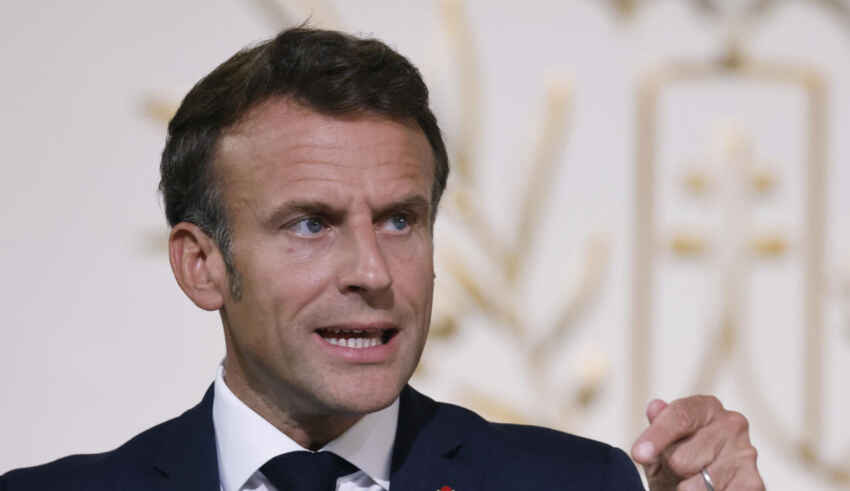
Last year in April, Macron introduced government reforms for the Foreign Ministry of France, which represents the third-largest diplomatic network in the world following the US and China, leading to severe criticisms. These criticisms were followed by a diplomats’ strike, in social media known as #diplo2metier. 500 diplomats joined the strikes arguing that the reform is “a historical fault” and will damage the French institution of diplomacy which has been existing since the 16th century.
Although these reforms were introduced to create mobility between different administrations and deepen the knowledge of civil servants in different fields, they are mainly criticized because of their nature of not allowing expertise. ‘Reforms’ by their nature and by their very definition are aiming to modernize and develop the existing administrative structure. However, the extent of these reforms was criticized not only by the senior diplomats but also by the young civil servants of the Foreign Ministry, who had the front lines in the strikes.
So far, the diplomatic corps has been enjoying an independent status from the rest of the civil service branches. However, new reforms aimed to modernize the French Foreign Ministry and diplomacy by increasing the mobility between different branches of the administration. This can include the creation of a new state body to organize the mobility of civil servants among different ministries. Also, two bodies of French diplomacy namely ambassadorship and foreign affairs advisory will merge.
The main arguments usually rotate around this merger and its possible cause of the gradual face out of the institution of diplomacy. The further grievance is linked to the increasing competition for positions in the foreign ministry, which is a common sense principle but it dilutes the service. The opposing diplomats repeatedly underlined the importance of the experience that they can only gain in the field while performing their tasks.
The concerns are not only directly related to the quality of the service and the strength of the institution of diplomacy. There are also concerns related to cronyism which would eventually result in the weakening of the institution and the services it provides. For some diplomats, the diplomatic corps are standing as a barrier against the governments to appoint only their proponents at different levels of administration. Therefore the existence of a strong diplomatic institution threatens nepotism.
Another point of the striker diplomats was the budget and personal cuts. There have been concerns raised by the diplomats due to continuous budget cuts over the last ten years and now the funding is reduced by 30 percent and corresponds only to 0.7 percent of the overall state budget. On the other hand, the defense budget planning corresponds to a 23 percent increase within the next five years. Priorities given in the state budgets are not only a domestic issue that confronts the civil servants with their governments, but it also shows the attitude of the government in the political atmosphere which is shaped in the light of the Ukrainian War.
The parliamentary election which was held between the 12th and the 19th of June is considered to be the most indecisive one of the last two decades. Not only the diplomats’ strike but also continuously rising tension by the trade and labor unions in the country resulted in fragmented results of the election. It is worth underlining here that Macron’s much-criticized pension reforms also played a major role in the results. A huge leap by the NUPES alliance shows that the biggest question mark in the country is now related to these reforms.
At the international level, reforms related to the Foreign Ministry are criticized for their possible outcome of hurting the global stance of France. The timing for the proposal of these reforms also was highly criticized. The introduction of the reforms was made while France had the rotating presidency of the European Union and it is no secret that Macron seeks a central role in the Europen Union’s stand in the Ukrainian War. There are ongoing talks over the Iranian Nuclear Program. Therefore, the introduction of these reforms, in such an environment is considered to ignore the need for delicacy and expertise in the field of diplomacy.
Former Prime Minister and the Minister of Foreign Affairs of France, Dominique de Villepin also raised his concerns regarding the possible effects of these reforms on France’s stance in international affairs. He argued that France has always played a crucial role in the international balance of power and these reforms would damage France’s influence and can contribute to the weakening of opposite voices against the US hegemony.
Russia expulsed foreign diplomats from the country following the Ukraine-Russia War. Considering that the EU is one of the biggest supporters of Ukraine in the war and France is one of the biggest supporters within the EU, their diplomatic strength directly affects the support and assistance Ukraine receives in the war. Therefore while Europe stands in the light of the war, diplomatic efforts need to be expanded, not only by France but by all European countries.
The institution of diplomacy plays a crucial role in the prevention of international crises. It, therefore, has a preventive effect on global peacemaking. On the other hand, the individual spending of countries on their security is on the rise on a global scale. Therefore the expenditures on crisis prevention efforts fall short compared to responses to the ‘security dilemma’.
It is important to note that France’s military power is crucial not only for its national defense but also for its international influence. It is important for its allies’ safety and for the protection of democratic institutions. However, with the world’s third-largest diplomatic network shrinking and facing budget cuts, its staff losing qualifications that can only be achieved through experience, the concerns about the soundness of global steps toward a diplomatic solution are not unfounded. Therefore, the attention given to defense services must also be given to diplomacy.
By The European Institute for International Law and International Relations.













